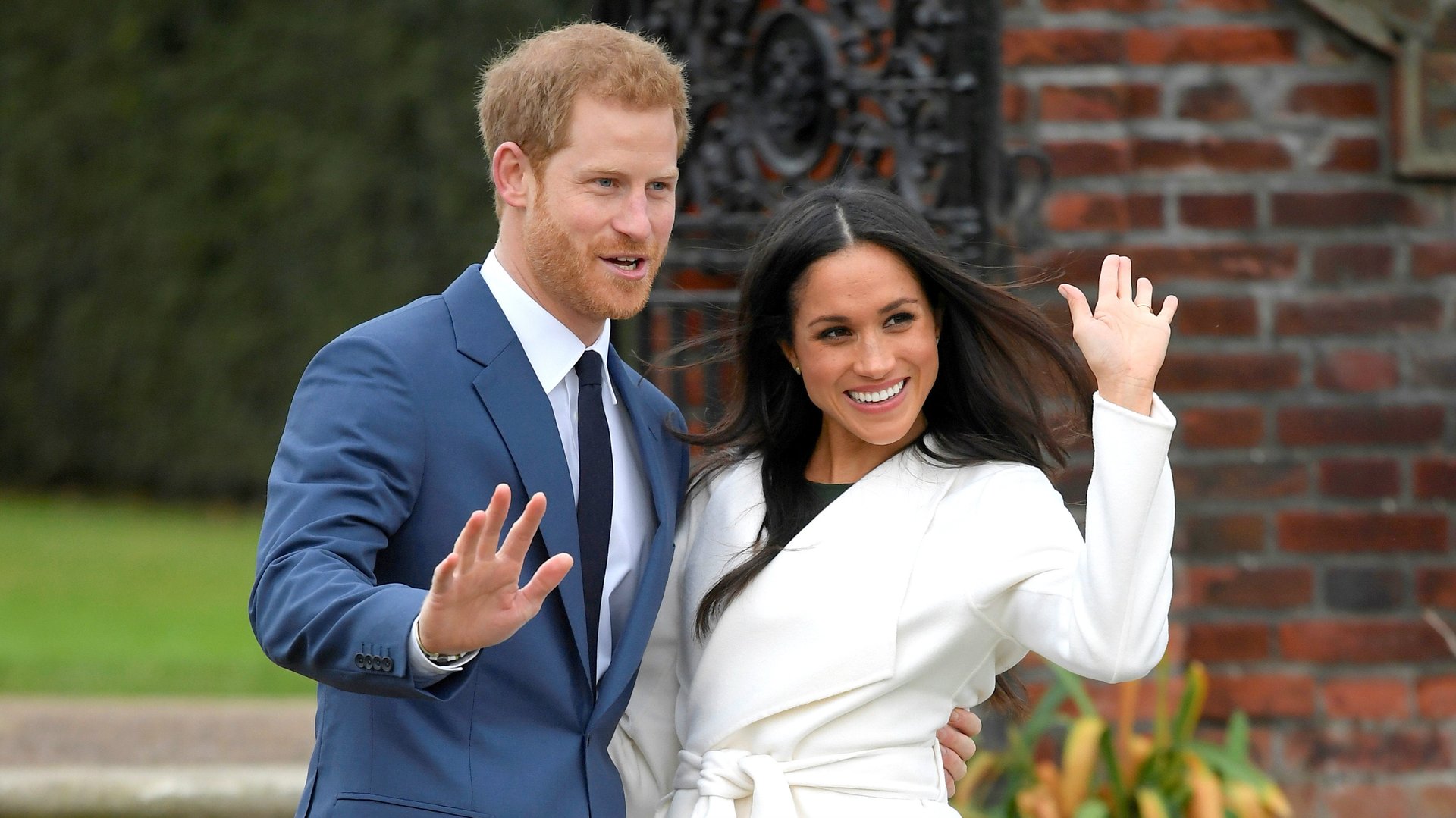Why does Meghan Markle need anyone to walk her down the aisle?
Update (9:20am ET, May 18): Kensington Palace has confirmed that Prince Charles will walk his future daughter-in-law, Meghan Markle, down the aisle.


Update (9:20am ET, May 18): Kensington Palace has confirmed that Prince Charles will walk his future daughter-in-law, Meghan Markle, down the aisle.
You’ve probably heard about the latest subject of worldwide obsession in the British royal wedding on May 19: Who will walk Meghan Markle down the aisle when she marries Prince Harry?
Today, palace representatives confirmed that the bride’s father, Thomas Markle, will not perform the task, which media outlets are attributing to him suffering a heart attack, or speculating that it was a result of the fallout over allegedly staged paparazzi photos for cash.
While it would be undoubtedly upsetting for Markle to not have her father at the wedding, especially since they are reportedly very close, it’s worth asking: Why the hell does she, or any other bride for that matter, need anyone to walk her down the aisle and “give her away” to her husband?
It’s a symbolic gesture, one saturated in patriarchy, that’s common to many cultures: The bride is escorted, usually by her father, to where the groom awaits to replace him at her side. To many it’s a cherished tradition, but some also find it highly offensive: Underlying the emotional moment is a metaphor for a rather harsh transaction—in which the woman is passed like property from one family to another.
So why, in this age of new feminist wedding traditions, do we keep this retrograde piece of ceremony alive? Educated, self-sufficient women like Meghan Markle are nobody’s property to give or receive. The actor, writer, and activist has “been supporting herself for the better part of two decades, amassing an estimated $5 million,” the New Yorker pointed out.
Here’s the thing: Weddings are more than just about the union between two people. They are also a declaration of love for your family and friends, and an opportunity for those people to declare their love to you. Many of us have complex or blended families, and the previously mechanical act of the father walking the bride down the aisle at the wedding has morphed and been reclaimed.
It no longer has to be the father who walks a bride (or a groom!) down the aisle. Choosing someone to take that role has come to be a gesture in itself, another distinct declaration of love in a day about love.
On my wedding day, my brother walked me down the aisle to my wedding. My father who died when I was just 21 would’ve taken that role but instead of getting rid of the act, I decided it was the perfect way to give one of the most important and poignant positions on one of the happiest days in the life to my younger brother, my best friend. I couldn’t imagine anyone else doing it. Others are doing it too, such as my colleague who is planning to have her uncle walk her down the aisle.
And it doesn’t have to be a man. It could be a best friend who has been with the bride through every joy and heartache; a mother proudly linking arms with the girl or boy she raised alone; even a child from an earlier marriage, expressing support for her parent’s newfound happiness. (Of course on the flip side, the choice can be a flashpoint for family politics. That may be why some people just do away with the role altogether.)
There’s no confirmation yet as to what Markle is going to do, but it hasn’t stopped people speculating about whether her mother, Doria Ragland, will take up the task.
The point is, it’s the bride’s choice, not her obligation—an act she has agency in, not one she submits to. Megan Markle is her own woman. And she can walk her own damned self down the aisle, if that’s what pleases her.